Reissue CDs Weekly: Cocteau Twins


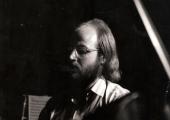
The similarity is intentional. The cover design of When the Day is Done – The Orchestrations of Robert Kirby nods explicitly to that of Nick Drake’s debut album Five Leaves Left. That wasn’t just the first record by the singer-songwriter, it was also first time most people heard Kirby’s string arrangements. He and Drake had been friends at Cambridge University. The album’s producer Joe Boyd commissioned arrangements by Richard Hewson but Drake rejected them and the call was made to Kirby, who had already worked with him live.

“That colourful character Zoot Money has recently been writing at length in support of psychedelic music. Now, what’s the score Zoot, has it got a contribution to make to the scene?” It’s 14 January 1967 and BBC presenter Brian Matthew is putting his guest on the spot.

What is music? When pondering archive releases, compilations and reissues the question doesn’t come up. Knowledge of context and history means there’s never a need to muse on this fundamental issue. A package, say, dedicated to Northern Soul says what it is and the prime considerations are how well it has been executed and defining its place in the relevant narrative. The same applies to anything previously covered in this column.
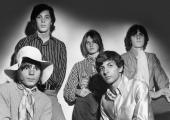
During the British Invasion years, a Cleveland, Ohio band called The Choir ploughed a Brit-focussed furrow from late 1964. Initially and tellingly, they were named The Mods. Their prime mover, Dann Klawon, was a subscriber the switched-on UK monthly Rave, had missed a Mods show to hitch-hike to a Rolling Stones concert and was the first Clevelander to own a copy of “Purple Haze”. His band became The Choir in 1966, played on Who and Yardbirds’ bills, and went through continuous line-up changes.
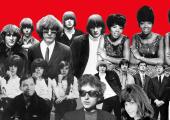
For Britain, 1965 began with The Beatles’ “I Feel Fine” at the top of the single’s chart. In December, the year bowed out with their double A-side “Day Tripper” / “We can Work it Out” in the same position. But 1965 was not just about The Beatles.
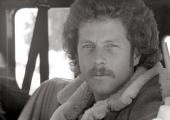
In 1976, when his first solo album Slippin’ Away was released, Chris Hillman could look back on being a founder member of The Byrds and The Flying Burrito Brothers, two of America’s most important bands. He had also played alongside former members of Buffalo Springfield in Manassas and The Souther-Hillman-Furay Band.
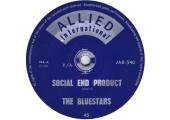
“I’ve been labelled as an angry young man / Because I don’t fit into the master plan / Under society’s microscope / I look funny but it’s no joke.
I’m a social end product so don’t blame me / I’m a social end product of society / It’s not my fault that I don’t belong / It’s the world around me that’s gone all wrong.”
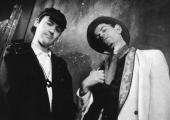
How much of someone else’s despair is it possible to take? What are the limits on putting a sense of desolation or isolation into a song? Can such naked expression be mediated by a glossy production or crowded instrumental arrangements which distract from the core essence of the song?

The critic Simon Reynolds characterised Butterfly Child’s debut album Onomatopoeia as the sound of “vitrified everglades in J.G. Ballard’s The Illuminated Man, where some kind of entropy has slowed down time, so that living creatures are literally petrified, encrusted and crystal.”